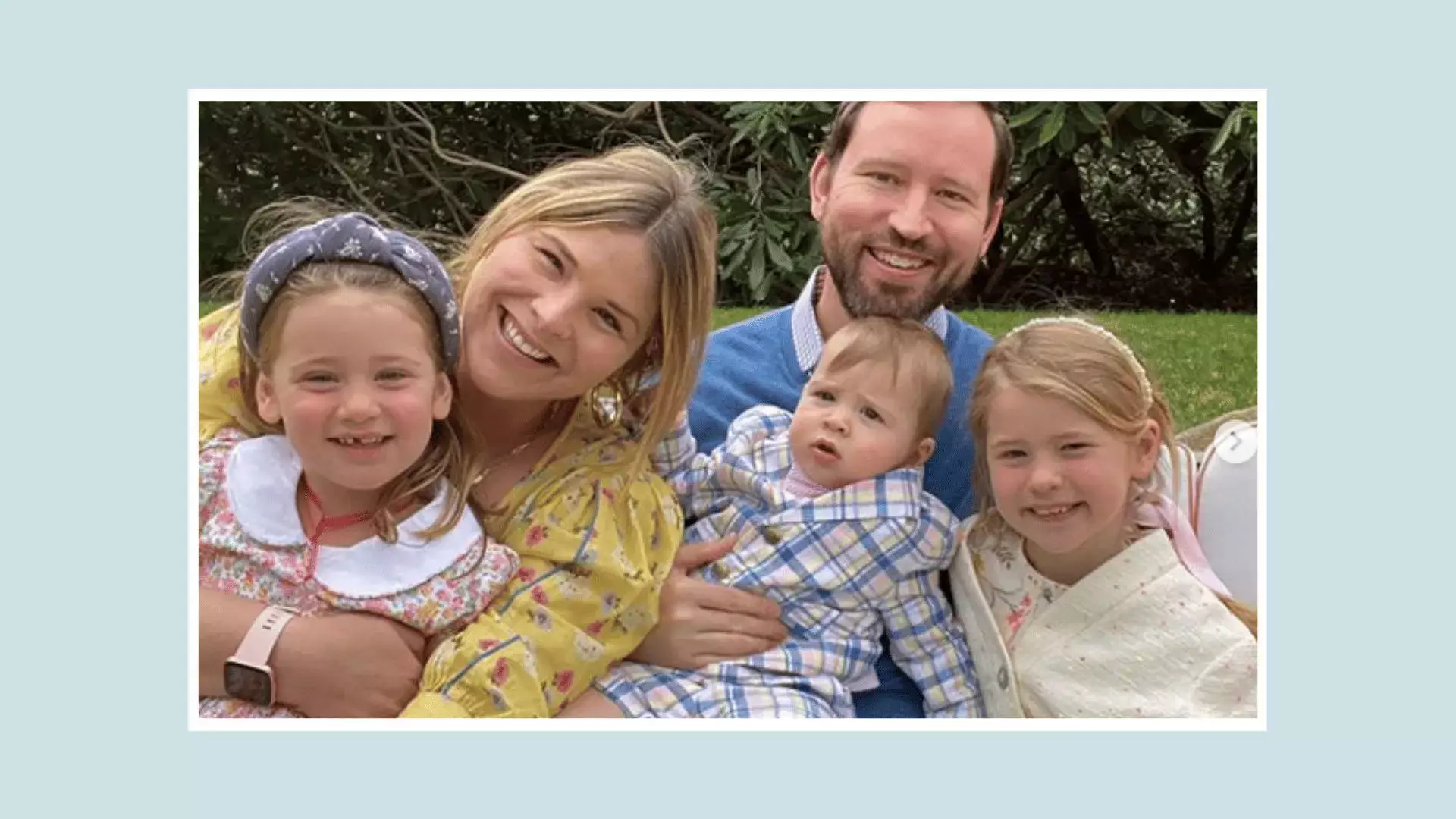Motherhood is a universal experience, yet it takes on unique configurations in the lives of public figures. Jenna Bush Hager is one such celebrity who has openly shared her trials and triumphs in parenthood, shedding light on the often unspoken realities that many mothers face. In her candid memoir, *Everything Beautiful in Its Time: Seasons of Love and Loss*, Bush Hager navigates the labyrinth of emotions that accompany the journey to motherhood, particularly the unexpected nature of her third pregnancy and the guilt that accompanied it.
Bush Hager’s story begins with a harrowing experience of an ectopic pregnancy before she welcomed her three children—Mila, 7, Poppy, 4, and Hal, 1. This background sets a poignant tone as she recounts her feelings upon discovering that she was pregnant with her son Hal when surprise was the least expected. The decision of bringing another child into the world had turned into an emotional struggle fraught with the juxtaposition of happiness and guilt.
The complexities of her emotions lay heavily on her shoulders, particularly the survivor’s guilt she felt knowing that her twin sister, Barbara, and best friend, Hoda Kotb, were both facing their own challenges with motherhood. In a world where infertility struggles are alarmingly common, Bush Hager’s candid acknowledgment of her feelings lends authenticity to the narrative. “I knew I should have felt joy, but my first feeling was a surge of survivor’s guilt,” she reveals, prompting a reflection on the societal pressures and expectations surrounding motherhood.
The term “immaculate conception,” humorously conceived by Bush Hager herself, showcases her struggle to reconcile the serendipitous nature of her pregnancy with her understanding of infertility, which runs in her family. The contrast between her personal narrative and the experiences of friends highlights the isolation often felt by those dealing with fertility issues. It serves as a reminder of how maternal joy can be overshadowed by the struggles of others.
The delicate task of sharing the pregnancy news with her parents, former President George W. Bush and Laura Bush, adds another layer to her emotional journey. Their immediate concern revolved around how her sister Barbara would receive this news, showcasing the sensitivity ingrained in familial bonds. The protective nature of a parent is evident as Bush Hager narrates her father’s thoughts, reflecting a broader societal concern for women facing reproductive challenges: “Every woman gets her baby in her time,” her mother wisely states.
This scenario highlights the layered complexities within family dynamics, especially when it comes to discussing sensitive topics like pregnancy. The contrasting reactions—her father’s cautious concern versus her mother’s calm reassurance—provide insight into the intergenerational dialogue about motherhood’s challenges and joys.
Perhaps the most heartwarming moment in Bush Hager’s journey is her interaction with Hoda Kotb, who herself had faced obstacles in her quest for motherhood. The trepidation that Bush Hager felt in revealing her news was met with heartfelt support and understanding from Kotb, echoing the theme of solidarity among women navigating similar life paths. The genuine joy Kotb exuded upon hearing the news helped to dissolve Bush Hager’s guilt, allowing her to embrace her pregnancy.
It’s also noteworthy that Kotb had news of her own: she was in the process of adopting her second daughter, Hope Catherine. This happy twist in their stories together cultivates a narrative that underscores the interconnectedness of women’s experiences. Through shared struggles, they find solace, comfort, and hope in each other—a powerful testament to the importance of community amid personal crises.
Jenna Bush Hager’s candid exploration of motherhood reveals a plethora of emotions that define the experience: joy, guilt, anxiety, and hope. Through her reflections, she invites us to acknowledge that the journey of motherhood—celebrated in media and public discourse—is often complicated and layered. Her story emphasizes the importance of understanding, both toward ourselves and others, as we traverse the often tumultuous waters of parenthood. In doing so, Bush Hager not only opens up about her own life but also resonates deeply with anyone who has navigated the delicate balance between personal joy and societal expectation. Ultimately, her narrative serves as a source of inspiration, advocating for women to embrace their unique journeys in whatever form they may take.

